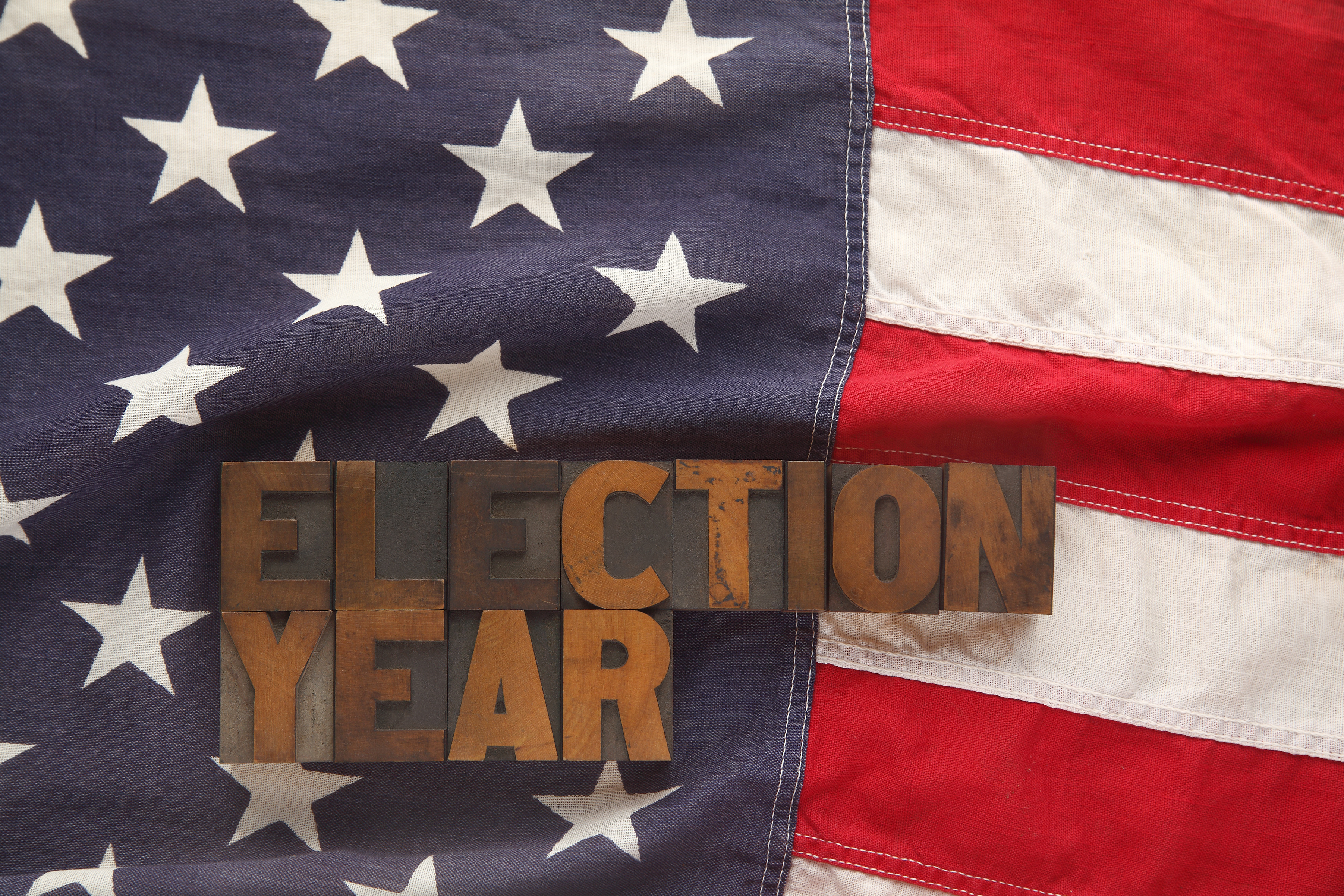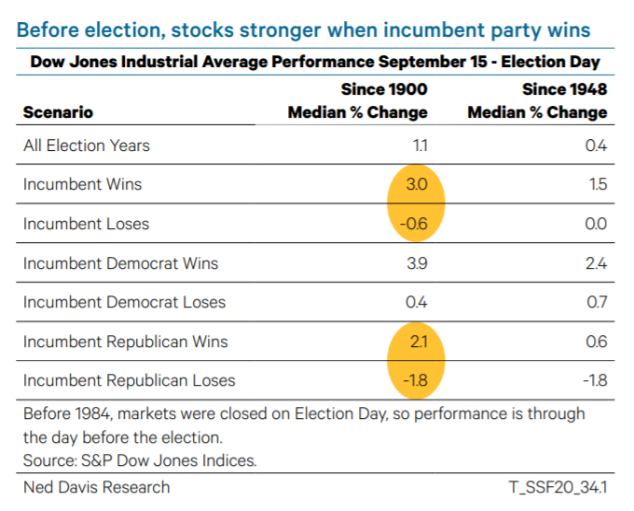Ned Davis Research
September 2020

Key Takeaways
Monday marked 50 days until the U.S. presidential election. With the possible exception of political pundits, the election cannot get here soon enough for most people. The pandemic pushed the election from the top of the news cycle, but with three presidential debates on the docket and early voting already underway in some states, the White House sweepstakes will be hard to knock off the top of the news feed.
You can add stock market bulls to the group that would prefer the election to be over. The market dislikes uncertainty, and political uncertainty is no exception. An upcoming presidential election has added to the uncertainty, especially in years when the outcome was in doubt.
On August 5, we highlighted that the market was weak approaching close elections. Joe Biden is leading in the polls, but after President Trump’s surprise victory four years ago, few are willing to confidently predict a winner this year.
The uncertainty has been even greater when the incumbent party has lost. There could be a chicken-versus-egg element to the analysis, with a weaker economy being negative for both the incumbent and the stock market. However, the uncertainty of a different administration likely plays a role as well.
Election Coming Into Focus

The table above breaks down the median performance of the Dow Jones Industrial Average (“DJIA”) between September 15 and Election Day based on the election outcome. The DJIA has been stronger when the incumbent party has won (median 3.0%) versus when the incumbent party has lost (-0.6%).
Focusing on the potential outcomes for 2020, the median gain from September 15 through Election Day when Republicans have retained the White House has been 2.1%, versus a median loss of 1.8% when the incumbent Republican has lost.
Sentiment vs. Reality
We generally put election analysis into the seasonality or sentiment bucket. Year-end rallies have tended to be weaker when incumbent Republicans have lost the presidential election.
However, post-election years have been strongest following incumbent Republican defeats (chart below). A possible explanation is that fears over higher taxes and regulations rarely come to fruition. Another reason could be that other factors such as economic growth, earnings growth, and interest rates outweigh political issues as elections fade from the headlines.
Above excerpted from: “Market messages as the election approaches” by Ed Clissold, September 15, 2020 (available through Ned Davis Research’s Institutional product offerings)
